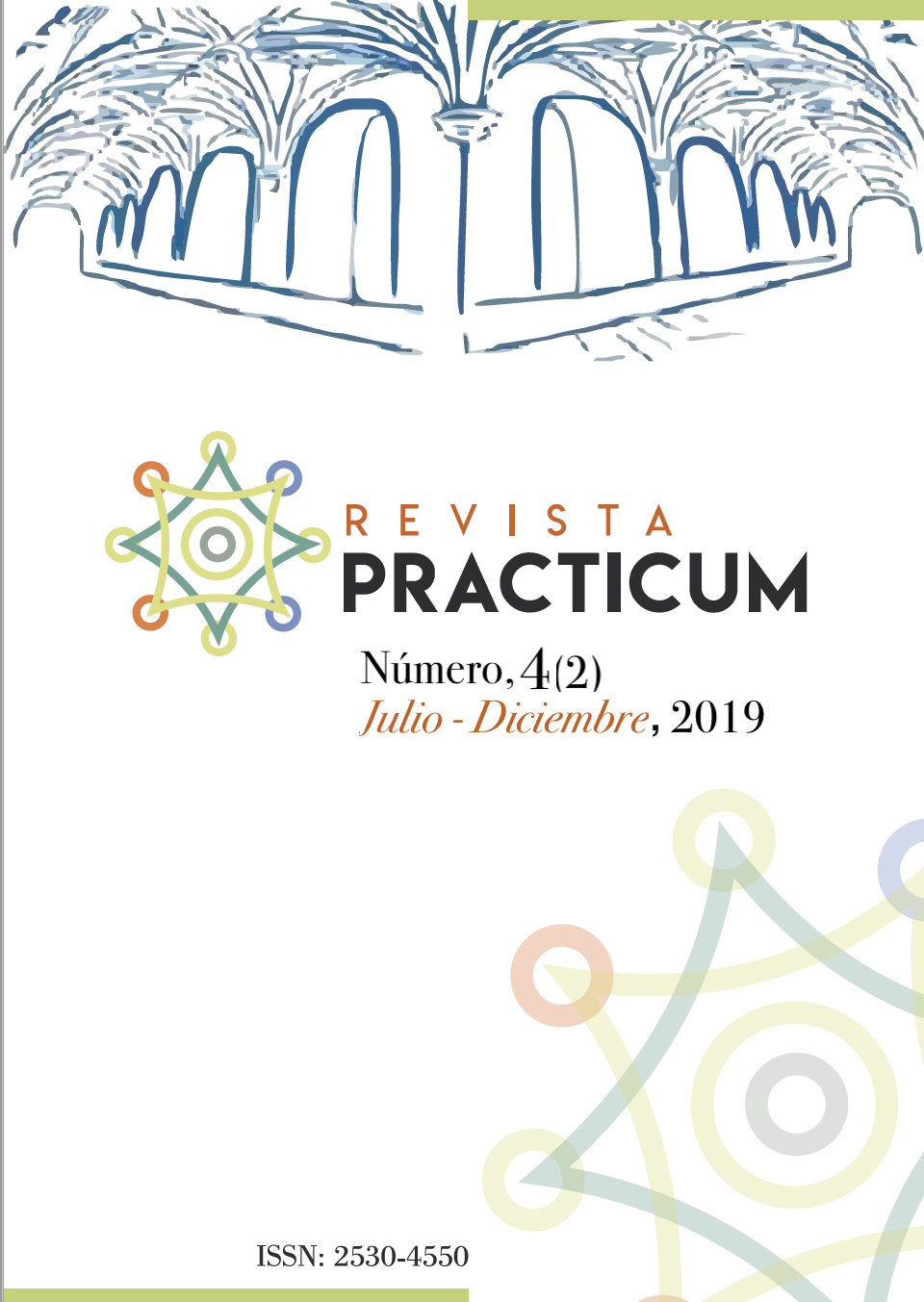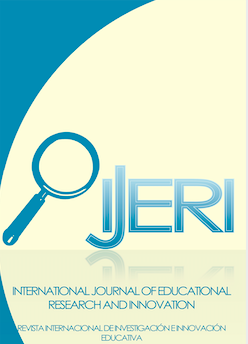Technological tools for monitoring students in FP dual
DOI:
https://doi.org/10.24310/RevPracticumrep.v4i2.7805Keywords:
Dual training, vocational training, mentoring, ICTAbstract
The increasingly rapid changes in society also imply new ways of doing in the educational field. The different agents have, therefore, to adapt to these advances. Vocational training in dual modality, together with the relationship between students and society-environment-entities, means that the teacher must look for new training and monitoring models that go through significant moments of non-attendance. The objective of this contribution aims to show different tools used in dual FP for the higher degree cycle of Teaching and socio-sports animation. The following are proposed: ?Banc Integrat de dades – BID –,telephone, email, Whatsapp, Google Drive and Google Classroom –within the Google G suite for educational centers–.It is verified that the use of different tools allows a tutoring-monitoring of the students in an integral way and from different points of view, which allows a more individualized, real and functional attention. These tools are proposed for other training models, although they will have to be adapted to the characteristics of each teaching-Downloads
Metrics
References
Alcina-Caudet, M. (2002) Tutorizar trabajos terminológicos en un entorno virtual de trabajo colaborativo. Sendebar, 13 (separata), 169-181. https://www.academia.edu/736108/_Tutorizar_trabajos_terminol%C3%B3gicos_en_un_entorno_virtual_de_trabajo_colaborativo_
Arderiu, M.; Brasó, J. (2019a_EN PRENSA) La formación del profesorado: Programar por competencias a partir de casos reales. Propuesta para el ámbito de la educación física. En I Conferencia Internacional: Educación 2019: retos, tendencias, compromisos, IRED 2019. Barcelona: Universitat de Barcelona.
Arderiu, M.; Brasó, J. (2019b) La FP DUAL intensiva en el CFGS de enseñanza y animación sociodeportiva: un posible modelo de éxito. En I Conferencia Internacional: Educación 2019: retos, tendencias, compromisos, IRED 2019. Barcelona: Universitat de Barcelona. (En prensa)
Bartolomé, A.; Cantón, I.; Moral, J. (2017) Una revisión a los practicum de la educación desde las tecnologías. Revista Prácticum, 1(1), 40-53.
Bernardo, J. (ed.) (2007) Cómo personalizar la educación: una solución de futuro. Madrid: Narcea.
Brasó, J. (2015) Thomas Arnold, Pere Vergés i els jocs organitzats. Els escacs, un projecte educatiu a l’Escola del Mar. Temps d’Educació, 49, 135-163. https://www.raco.cat/index.php/TempsEducacio/article/view/303553
Brasó, J. (2018) Pedagogía crítica: Recuperar el pasado para enfrentar el presente… y cambiar el futuro. Cronopio, 80. https://www.revistacronopio.com/tag/jordi-braso-rius/
Brasó, J.; Torrebadella, X. (2018) Reflexiones para (re)formular una educación física crítica. Revista Internacional de Medicina y Ciencias de la Actividad Física y el Deporte, 18(71), 441 461. http://dx.doi.org/10.15366/rimcafd2018.71.003.
Cebrián, M. (2018). Modelo de evaluación colaborativa de los aprendizajes en el prácticum mediante Corubric. Revista Prácticum, 3(1), 62-79. Consejo Escolar del Estado (2004) Formación profesional y Estado: hacia un espacio común. Seminario, 4 y 5 de febrero. Madrid: Ministerio de Educación y Ciencia.
Diéguez, A. (2017) Transhumanismo: La búsqueda tecnológica del mejoramiento humano. Barcelona: Herder.
Gil, J. (2009). La metodología de investigación mediante grupos de discusión. Enseñanza & Teaching: Revista Interuniversitaria de didáctica, 10, 199-212.Giner, Y.; Muriel, M.; Toledano, F. (2013) De la tutoría presencial a la virtual: la evolución del proceso de tutorización. Revista de Docencia Universitaria, 11(2) 89-106. https://doi.org/10.4995/redu.2013.5568
González-Brignardello, M., Méndez, L. (2017). Desarrollo de un PRACTICUM VIRTUAL: fundamentos y claves. Revista Prácticum, 2(2) 50-68.
Gonzalo, V. (2018) G Suite for Education. Administración y configuración en centros educativos. Madrid: RA-MA.
Lentzen, S. (2016) Los modelos de formación dual como integración de lo académico y lo laboral. Revista Prácticum, 1(1), 24-39.
López, I. (2010). El grupo de discusión como estrategia metodológica de investigación: aplicación a un caso. EDETANIA, 38, 147-156.
Ferrero, P.; Alda, J. (2005) La tutorización virtual y -la expresión de las emociones. en Fernández-Valmayor, A.; Fernández-Pampillón, A.; Merino, J. (ed.) II Jornada Campus Virtual UCM. Como integrar investigación y docencia en el CV-UCM. Madrid: Complutense, 129-133. https://eprints.ucm.es/5780/
Marhuenda, F.; Cros, M.; Giménez, E. (coord.) (2001) Aprender de las prácticas: didáctica de la formación en centros de trabajo. Valencia: Universitat de València.
Meirieu, P. (2003) Frankenstein educador. Barcelona: Laertes.
Riemen, R: (2017) Per combatre aquesta època. Barcelona: Arcàdia.
Romero, R., Saiz, M., Verdú, J. L.; Vicedo, J. L. Foros virtuales colaborativos en línea aplicados a procesos de tutorización. En Actas de las X Jornadas de Enseñanza Universitaria de la Informática, 14-16 de julio de 2004, Escuela Politécnica Superior, Universidad de Alicante: Alicante, 321-327. http://www.dccia.ua.es/jenui2004/actas/ponencias/ponencia37.pdf
Romero-Montero, S.; Xavier-Torrebadella, X. (2018). CoRubrics de Google Drive: Una evaluación innovadora para una escuela innovadora. Revista Practicum, 3(2), 77-94.
Tomé, A.; Tonucci, F. (2013) Amb ulls de nena. Barcelona: Graó.
Torres, J.; Perera, V. (2010) La rúbrica como instrumento pedagógico para la tutorización y evaluación de los aprendizajes en el foro online en educación superior. Pixel-Bit. Revista de Medios y Educación, 36, 141-149. https://idus.us.es/xmlui/handle/11441/53714
Downloads
Published
How to Cite
Issue
Section
License
Acceptance of the work implies that the author grants Revista Prácticum the exclusive rights to reproduce, distribute and sell his or her work worldwide, both in digital and paper formats, CD-ROM, etc.
Likewise, the authors shall grant Revista Prácticum the rights of dissemination, public communication on the Internet and IT networks, data buses, as well as any other portals or electronic devices for online consultation of its contents and extracts, under the conditions of the portal, repositories or databases where the work is stored.
Revista Prácticum allows authors to publish and disseminate their articles and works on their personal websites, research teams, institutional repositories and scientific databases. All this in accordance with the Creative Commons 4.0 License









8.png)








